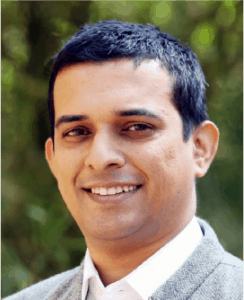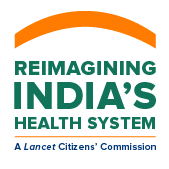In Conversation: Arnab Mukherji, Professor of Public Policy, Center for Public Policy, IIM Bangalore
November 11, 2021

As a graduate student based at the RAND Corporation, California, I spent a lot of time working on health policy issues spanning managing care for chronic diseases to understanding rehabilitation models for adolescent drug addiction. I was always curious about problems pertaining to India. I found an opportunity when I was asked onto a team studying low vaccination uptake in India. The literature had focussed on infrastructural deficits as the primary reason why achieving universal vaccination was difficult. However, our work showed that even if we address these deficits, universal vaccination wouldn’t be achieved. Structural changes were critical for healthcare delivery system to ensure universalization. This not only made me see the fit between economics and healthcare, but we published this work in the Indian Journal of Medical Research. Much of my work since has focussed on using microeconometric data focussing on issues of interest for the health system – for example, how access to social insurance can impact health seeking behaviour, financial risk reduction, and improve a household’s indebtedness, or how air pollution affects children’s health, or key correlates of changing demand for healthcare.
On the Commission I co-lead a research initiative that seeks to benchmark the current status of the India’s health system. This research initiative seeks to first measures the gradient in universal health coverage (UHC) across the country. Subsequently, using this gradient, the research develops cases studies of districts and cities to understand the aspirations of users and managers of the health system at different levels of coverage. Using data ranging from micro-data, administrative data, to analysing newspapers, and collecting primary data we hope to generate insights relevant for multiple workstreams across the Commission.
Our challenges stem in large part to underinvestment in healthcare for decades – fiscal data shows this to be true even in pre-independent India. This lack of capacity has meant that while we do have islands of exceptional success, we also have large swathes of the public health system that not only have poor ability to screen, diagnose, and identify a treatment pathway, but is also not meaningful to the socio-economic context in which care is sought. Addressing this is partly about increasing investments in UHC, and equally about the right mix of policy’s to guide the sector and institutions to govern the entire system in delivering a common set of health outcomes across the country.
I hope the work of the Commission will be seen as a way to guide the current debate on how to improve healthcare in India. With multiple systems, varying care of levels, access barriers, and financial challenges there is much on which change is needed. I hope the Commission’s workstreams will be seen as a blueprint for the path towards achieving UHC across these multiple dimensions.
